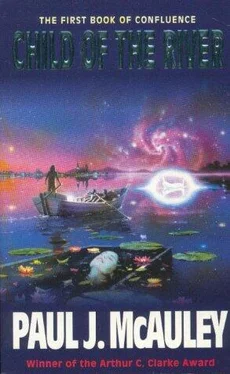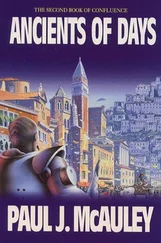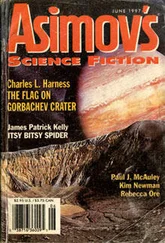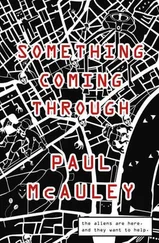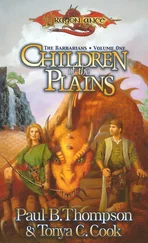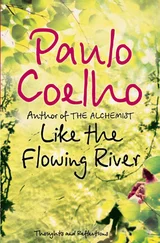Paul J. McAuley
Child of the River
(Confluence-1)
Chapter One
The White Boat
The constable of Aeolis was a shrewd, pragmatic man who did not believe in miracles. In his opinion, everything must have an explanation, and simple explanations were the best of all. “The sharpest knife cuts cleanest,” he often told his sons. “The more a man talks, the more likely it is he’s lying.”
But to the end of his days, he could not explain the affair of the white boat.
It happened one midsummer night, when the huge black sky above the Great River was punctuated only by a scattering of dim halo stars and the dull red swirl, no bigger than a man’s hand, of the Eye of the Preservers. The heaped lights of the little city of Aeolis and the lights of the carracks riding at anchor outside the harbor entrance were brighter by far than anything in the sky.
The summer heat was oppressive to the people of Aeolis.
For most of the day they slept in the relative cool of their seeps and wallows, rising to begin work when the Rim Mountains clawed the setting sun, and retiring again when the sun rose, renewed, above the devouring peaks. In summer, stores and taverns and workshops stayed open from dusk until dawn, fishing boats set out at midnight to trawl the black river for noctilucent polyps and pale shrimp, and the streets of Aeolis were crowded and bustling beneath the flare of cressets and the orange glow of sodium-vapor lamps. At night, in summer, the lights of Aeolis shone like a beacon in the midst of the dark shore.
That particular night, the Constable and his two eldest sons were rowing back to Aeolis in their skiff with two vagrant river traders who had been arrested while trying to run bales of cigarettes to the unchanged hill tribes of the wild shore downstream of Aeolis. Part of the traders’ contraband cargo, soft bales sealed in plastic wrap and oiled cloth, was stacked in the forward well of the skiff, the traders lay in the stern, tied up like shoats for the slaughter. The skiff’s powerful motor had been shot out in the brief skirmish, and the Constable’s sons, already as big as their father, sat side by side on the center thwart, rowing steadily against the current. The Constable was perched on a button cushion in the skiff’s high stern, steering for the lights of Aeolis.
The Constable was drinking steadily from a cruse of wine.
He was a large man with loose gray skin and gross features, like a figure hastily molded from clay and abandoned before it was completed. A pair of tusks protruded like daggers from his meaty upper lip. One tusk had been broken when he had fought and killed his father, and the Constable had had it capped with silver; silver chinked against the neck of the cruse each time he took a swig of wine.
The Constable was not in a good temper. He would make a fair profit from his half of the captured cargo (the other half would go to the Aedile, if he could spare an hour or so from his excavations to pronounce sentence on the traders), but the arrest had not gone smoothly. The river traders had hired a pentad of ruffians as an escort, and they had put up a desperate fight before the Constable and his sons had managed to dispatch them. The Constable’s shoulders had taken a bad cut, cleaving through blubber to the muscle beneath, and his back had been scorched by reflection of the pistol bolt which had damaged the skiff’s motor. Fortunately, the weapon, which had probably predated the foundation of Aeolis, had misfired on the second shot and killed the man using it, but the Constable knew that he could not rely on good luck forever. He was getting old, ponderous and muddled when once he had been quick and strong. He knew that sooner or later one of his sons would challenge him, and he was worried that this night’s botched episode was a harbinger of his decline. Like all strong men, he feared his own weakness more than death, for strength was how he measured the worth of his life.
Now and then he turned and looked back at the pyre of the smugglers’ boat. It had burnt to the waterline, a flickering dash of light riding its own reflection far out across the river’s broad black plain. The Constable’s sons had run it aground on a mudbank, so that it would not drift amongst the banyan islands which at this time of year spun in slow circles in the shallow sargasso of the Great River’s nearside shoals, tethered only by fine nets of feeder roots.
Of the two river traders, one lay as still as a sated cayman, resigned to his fate, but his mate, a tall, skinny old man naked but for a breechclout and an unraveling turban, was trying to convince the Constable to let him go. Yoked hand to foot, so that his back was bent like a bow, he stared up at the Constable from the well, his insincere frightened smile like a rictus, his eyes so wide that white showed clear around their slitted irises. At first he had tried to gain the Constable’s attention with flattery; now he was turning to threats.
“I have many friends, captain, who would be unhappy to see me in your jail,” he said. “There are no walls strong enough to withstand the force of their friendship, for I am a generous man. I am known for my generosity across the breadth of the river.”
The Constable rapped the top of the trader’s turban with the butt of his whip, and for the fourth or fifth time advised him to be quiet. It was clear from the arrowhead tattoos on the man’s fingers that he belonged to one of the street gangs which roved the ancient wharves of Ys. Any friends he might have were a hundred leagues upriver, and by dusk tomorrow he and his companion would be dead.
The skinny trader babbled, “Last year, captain, I took it upon myself to sponsor the wedding of the son of one of my dear friends, who had been struck down in the prime of life. Bad fortune had left his widow with little more than a rented room and nine children to feed. The son was besotted; his bride’s family impatient. This poor lady had no one to turn to but myself, and I, captain, remembering the good company of my friend, his wisdom and his friendly laughter, took it upon myself to organize everything. Four hundred people ate and drank at the celebration, and I count them all as my friends. Quails’ tongues in aspic we had, captain, and mounds of oysters and fish roe, and baby goats tender as the butter they were seethed in.”
Perhaps there was a grain of truth in the story. Perhaps the man had been one of the guests at such a wedding, but he could not have sponsored it. No one desperate enough to try to smuggle cigarettes to the hill tribes would have been able to lavish that kind of money on an act of charity.
The Constable flicked his whip across the legs of the prisoners. He said, “You are a dead man, and dead men have no friends. Compose yourself. Our city might be a small place, but it has a shrine, and it was one of the last places along all the river’s shore where avatars talked with men, before the heretics silenced them. Pilgrims still come here, for even if the avatars are no longer able to speak, surely they are still listening. We’ll let you speak to them after you’ve been sentenced. I suggest you take the time to think of what account you can give of your life.”
One of the Constable’s sons laughed, and the Constable gave their broad backs a touch of his whip. “Row,” he told them, “and keep quiet.”
“Quails’ tongues,” the talkative trader said. “Anything you want, captain. You have only to name it and it will be yours. I can make you rich. I can offer you my own home, captain. Like a palace it is, right in the heart of Ys. Far from this stinking hole—”
The boat rocked when the Constable jumped into the well. His sons cursed wearily, and shipped their oars. The Constable knocked off the wretched trader’s turban, pulled up the man’s head by the greasy knot of hair that sprouted from his crown and, before he could scream, thrust two fingers into his mouth and grasped his writhing tongue. The trader gagged and tried to bite the Constable’s fingers, but his teeth scarcely bruised their leathery skin. The Constable drew his knife, sliced the trader’s tongue in half and tossed the scrap of flesh over the side of the skiff. The trader gargled blood and thrashed like a landed fish.
Читать дальше
